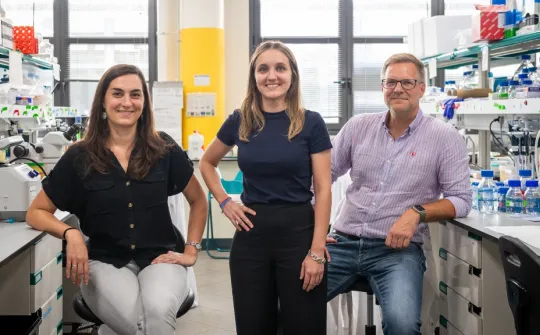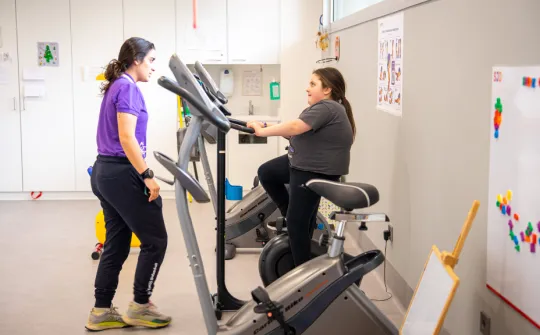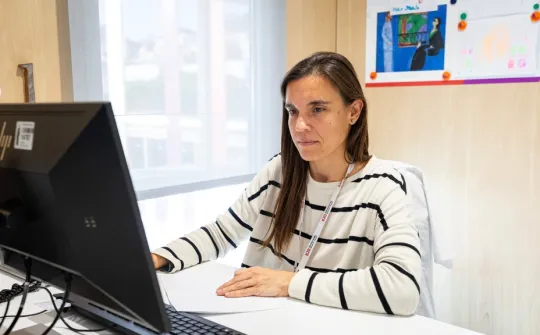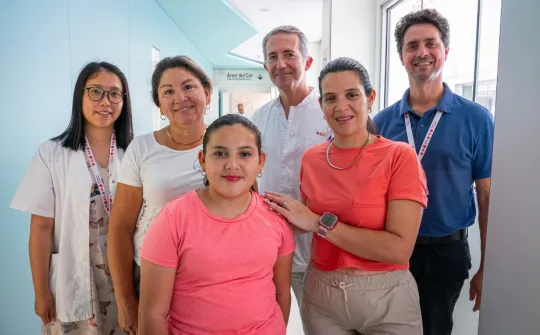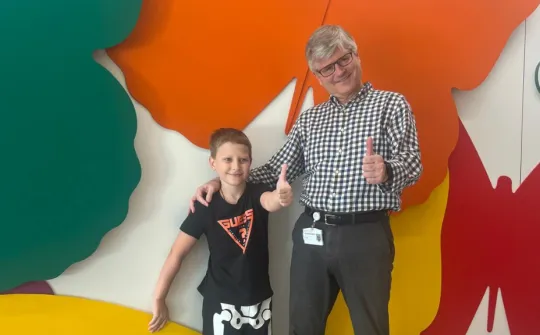A step forward for personalised immunotherapy treatment from a case of aggressive pediatric cancer
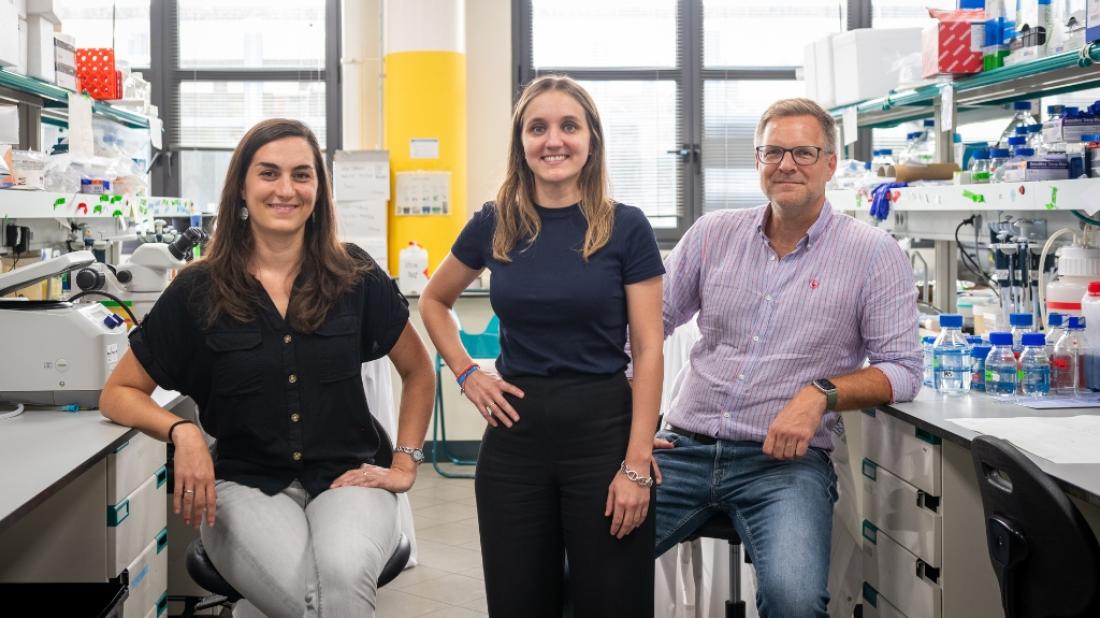
After undergoing surgery, chemotherapy and radiotherapy, a patient received personalised immunotherapy, which helped her T-lymphocytes recognise and attack tumor cells.
A girl diagnosed at five months old with a renal rhabdoid tumor has gone into complete remission thanks to a combined therapy that included immunotherapy. This clinical case, headed by a team of researchers at SJD Barcelona Children's Hospital, the National Center for Genomic Analysis (CNAG) and the Biomedical Research Institute (IRB Barcelona), has allowed immune cells with tumor-fighting capabilities to be identified and has opened the door to new advanced cell therapy treatment routes.
While infrequent, rhabdoid tumors are highly aggressive pediatric tumors, with an average of 12 cases per year in Spain. After an initial treatment phase involving surgery, chemotherapy and radiotherapy, the patient received a round of immunotherapy treatment based on immune checkpoint inhibitors (ICI), a strategy that strengthens the response of T-lymphocytes, helping them to recognise and attack tumor cells.
For over a year, the research team analysed the patient's immune response to the treatment. The analyses, carried out with next-generation Annals of Oncology, represents a significant step forward in personalised medical care.
‘Our results highlight that taking an in-depth look at each individual case can provide valuable insight that directly impacts results for our patients, especially in cases of cancers that are as rare and aggressive as rhabdoid tumors. Our focus was on identifying what determined the response to ICI therapy in pediatric patients, and our work delivers a real-life foundation onto which we can build more personalised immune therapy treatments for young patients, who currently have very few options’, affirmed Dr Alexandra Avgustinova, from the SJD Research Institute, who is also Head of the IRB Barcelona group and co-author of the study.
With the patient still in remission two years after being first diagnosed, researchers consider this case to be an invaluable opportunity for the design of new therapies for children with rare, hard-to-treat cancers.
Read more
A pediatric patient's good response to treatment for her renal rhabdoid tumor has helped identify immune cells with tumor-fighting capabilities.
